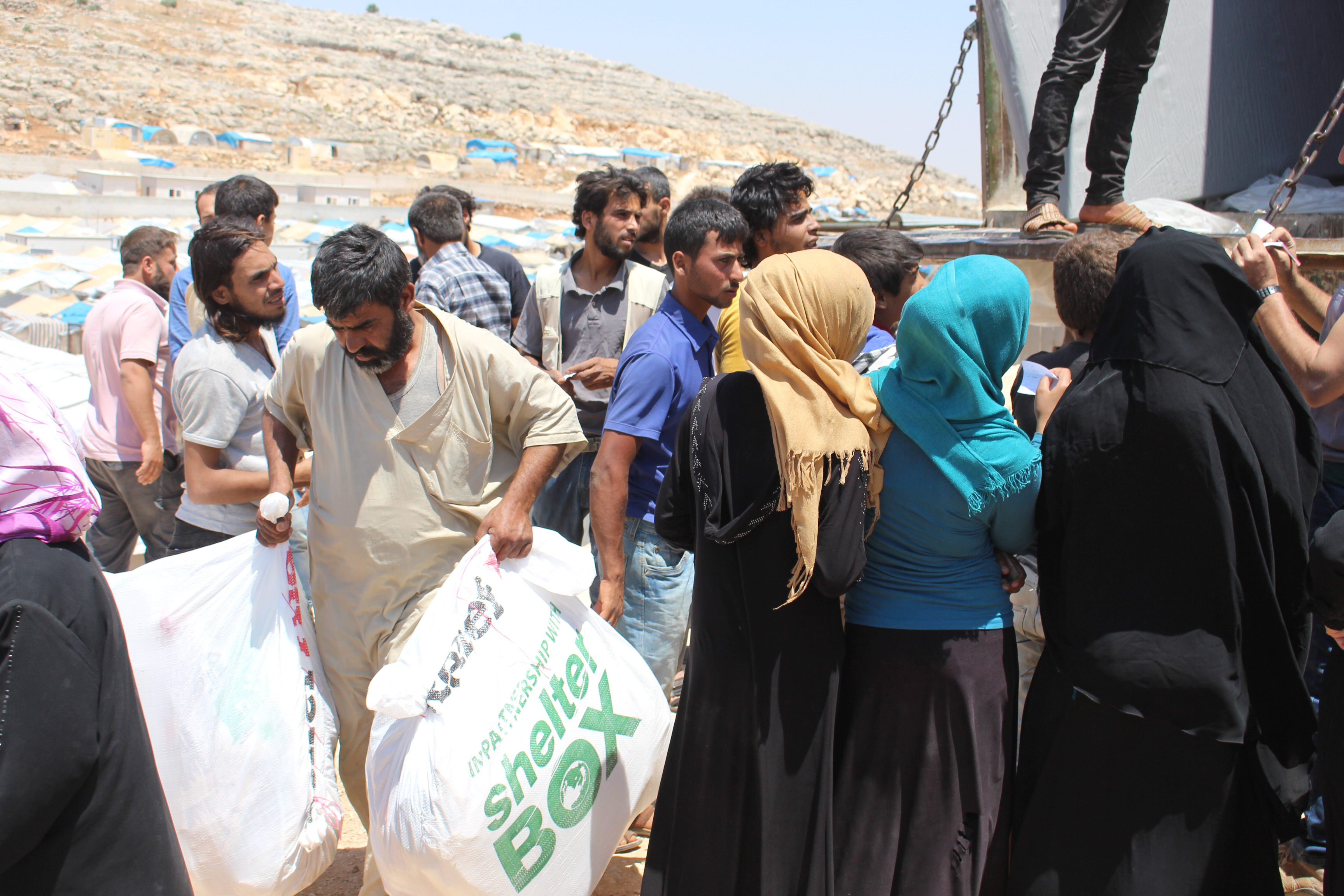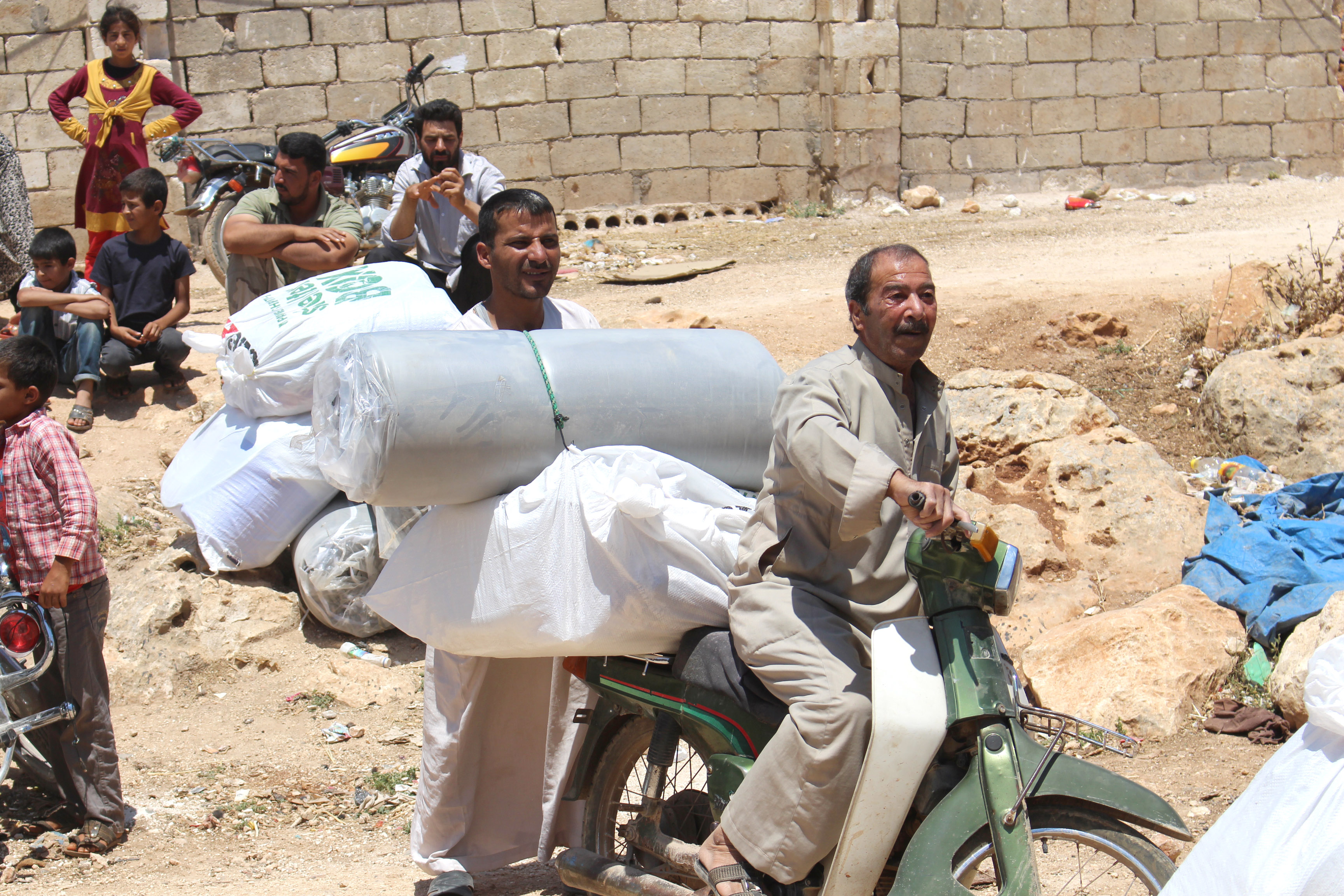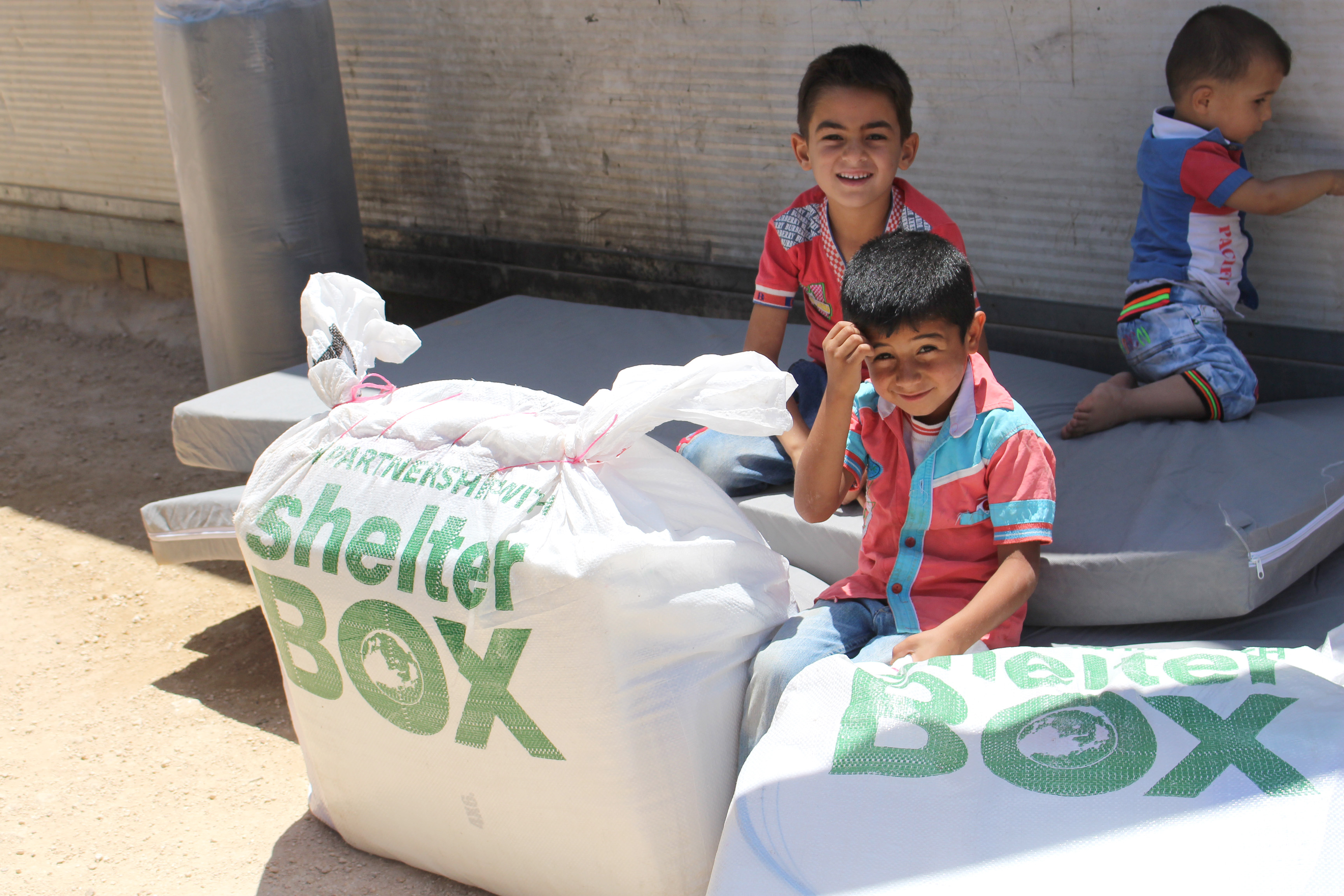During the winter of 2011, Farid was looking forward to starting his postgraduate studies in Aleppo, Syria.
But when the bloody civil war erupted in his country, he was faced with a tough dilemma. Should he flee the conflict and violence, or stay and deliver much-needed aid to fellow Syrians?
Staying in Syria
Farid’s decision to stay in Syria was not an easy one.
Farid and several friends organised a committee to distribute aid in Syria. Not long afterward, he started working with ReliefAid – one of ShelterBox’s partners in Syria – to deliver humanitarian aid across the most badly hit regions of Syria.
In the years since then, Farid has often come face-to-face with the harsh realities of war and the devastation this has had on thousands of innocent people – including his own friend.
He spoke to us and took some time to reflect upon his life in a conflict zone and his work for ReliefAid.
Read the interview below.
Q. You have been delivering aid in Syria for a considerable amount of time, can you tell me about the specific needs of the people you have encountered?
A. Right now, people simply need items to help them survive. But in the future, once safety has hopefully come back, the most important focus will be to rekindle and then advance the education process.
As a society, we’ll need to rehabilitate educational facilities and develop an education system so that we can create the men and women of the future who will rebuild Syria.
Q. Tell us how people’s lives have been improved by the aid you have distributed?
A. The materials we distribute have helped to protect people from extreme weather conditions and have given them greater space and privacy for their families.
We’ve been able to preserve life by giving them the tools necessary to purify water to drink, we also deliver season-specific clothing to vulnerable communities and specifically children.

Q. Which is your favourite aid item and why?
A. The solar lamps because they allow children to do their homework.
Q. How do you stay as safe as possible when distributing aid?
A. We calculate (as much as we can) the likelihood of the airstrikes hitting at certain points throughout the day. We avoid scheduling the distribution at these times and we choose uncovered places for distribution, places which are difficult to be seen by aircraft, beyond this were just incredibly careful when moving between the distribution points.
Q. Can you tell me a little more about the group of guys you work with? Not everyone who could distribute aid does. Therefore, what are your personal motivations for doing so?
A. All of the young men in my team were harmed in one way or another, they lost their educational future, their jobs, and felt that it was, and remains their duty to help their fellow Syrians and provide them with the most basic of life’s necessities.

Q. What do you think you would be doing right now if the conflict in Syria hadn’t overtaken the country?
A. I’d most likely have finished my Master’s degree and now be working on a PhD, the doctoral thesis being about a portable water de-salination plant that operates using ozone and supplies northern Syria with drinking water.
Q. Is there a particular memory you have which signifies the fragility of life in war-torn regions?
A. One day a friend and I were distributing aid to a neighborhood I knew well. After we’d finished, he mentioned that he was meeting a girl […] and invited me to go to the market to help him pick out some new clothes to wear for the date.
But I did not go with him because it had been an exhausting day and I wanted to get some sleep. So, I wished him the best for the evening and we parted ways.
Not long after saying goodbye, I received news that the market had been bombed by an explosive barrel bomb released by a helicopter flying over the city, and that my friend had been killed.
In that moment, my only wish was that I had accompanied him to the market.

Q. What do you hope for your own future?
I hope to see my family again, complete my studies, get married and create a family. The simple things in life.
Q. What are your greatest fears and hopes for Syria and your fellow Syrians?
A. Our biggest fear is that the war will continue and the country will become even more divided. Our biggest hope is that the war will stop and peace will prevail. [The people we’re helping] are incredibly resilient and resourceful, but they have no choice because they are victims of a cruel war.
Your support has enabled us to help over 50,000 families affected by the brutal conflict in Syria.
But our work doesn’t stop here. There are thousands of families living in Syria and neighboring countries who have no shelter, nowhere to go, and no hope for the future.
We’re working to change this. We are impatient to see a world where no family is left without shelter.
